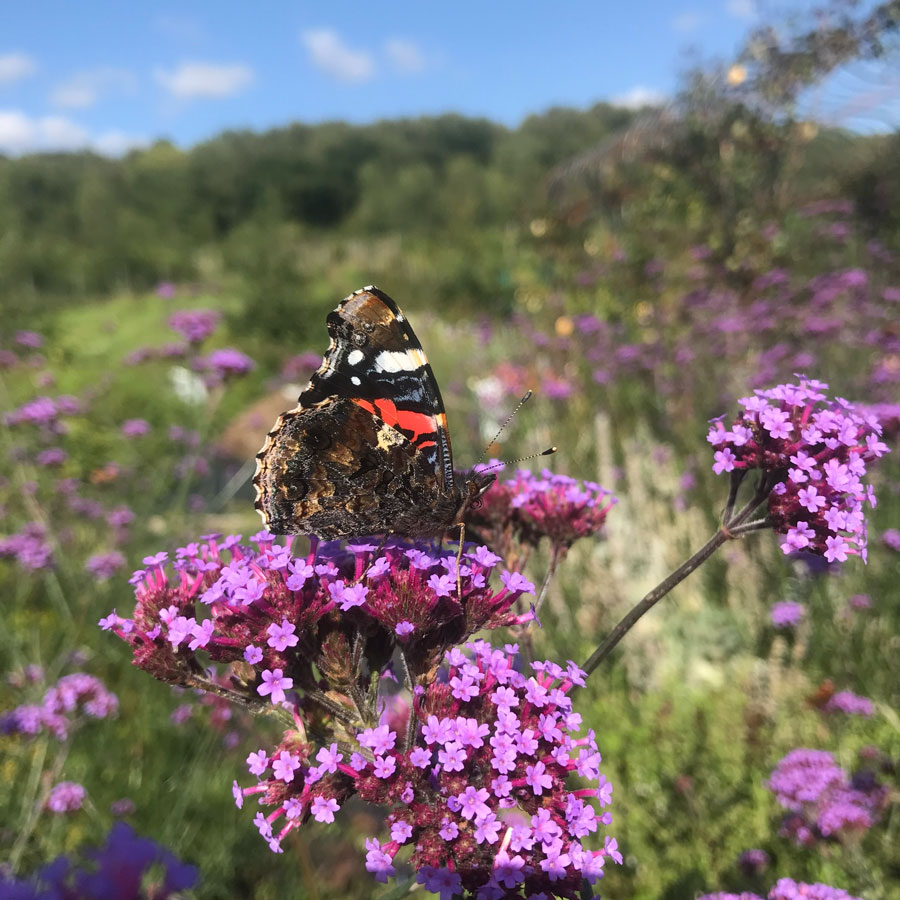
Tomnah’a Market Garden
In this series of guest blogs, Suzy Russell, Network Coordinator of the Community Supported Agriculture (CSA) Network, describes the business models of some of the CSAs in their community. CSAs are a partnership between farmers and consumers in which the responsibilities, risks and rewards of farming are shared. Here, in the final blog of the series, Suzy introduces Tomnah’a Market Garden.
Tomnah’a Market Garden is a CSA scheme based near Comrie in Perthshire, Scotland. They grow and supply vegetables and flowers for more than 140 local households, all located within 20 miles of the site, using agroecological principles. Tomnah’a’s vision is:
“To create a beautiful and abundant garden that provides the team with livelihoods, whilst being a vital community resource and wildlife haven. The space will inspire creativity and connect people to the land and where their food comes from, experimenting with growing techniques that help life above and below the ground.”
The CSA was established in 2015, as a company limited by shares, by founders Sam, Judith, James and Cristy, who wanted to grow food for more people. Judith and Sam had a background in community gardening, working with schools and the charity sector, and wanted to set up a company to support these activities. Judith and James met Andrew, their future landlord, on the New Farmer Programme run by the food ‘policy and practice’ charity Nourish Scotland. They jumped at the opportunity when he told them about his vision to grow food and create a sustainable farm.
They received a SRDP Young New Entrants Farmer Grant from the Scottish government and the EU in 2015 and bolstered this with personal savings. Andrew, the landowner, allowed them to live on the land very cheaply for the first four years. They are growing on five acres of rented land based at an existing eco-tourism site which has a wedding venue, farm shop, bike trails and hostel. This existing infrastructure proved really helpful, and Andrew also invested in paths and fencing. The fact that they were on a site with an existing footfall made recruitment to the CSA far easier.
They have two strands to their business – the CSA and the flower business. Together they generate around £95,000 of revenue, of which £55,000 comes from the CSA and £40,000 from flowers and other veg sales. The flowers are sold for weddings and to local flower businesses as well as privately to individuals. They say that combining flower growing with a veg CSA helps cash flow and is great for biodiversity. They have planted trees for flowers, wildlife and fruit. They also produce eggs from chickens who run under the trees and which they sell as an extra to CSA members.
The CSA operates for 28 weeks of the year with a break in winter, and Tom, Judith and Cristy are very keen to maintain this winter break, saying it gives them and the farm a chance to recharge. This does mean they spend a bit of time ‘re-recruiting’ each spring but they feel it is worth it.
Their income is spent on salaries (75%); growing costs (20%) and operational and admin costs (5%). The CSA side of the business requires about 1.5 full-time equivalent (FTE) workers and overall they have three FTE workers. They also support three to four trainees each year and have eight volunteers who together put in around four FTE in hours. They were advised to adopt the company limited by shares model at the beginning by a business advisor, but feel it doesn’t fit with their business and are keen to change to a different one.
The pandemic changed everything in an instant and demonstrated the strength of their diverse enterprise. Looking forward, they plan to make the farm more accessible to visitors via weekly tours, pick-your-own-flower sessions and monthly workshops. They would like to increase the diversity of their membership so their produce is more accessible to a wider population. They want to reduce sales further afield and to continue to have time off in winter. They’re happy with how far their business has come but would recommend slower growth, with more time to set up infrastructure and to develop working relationships.

